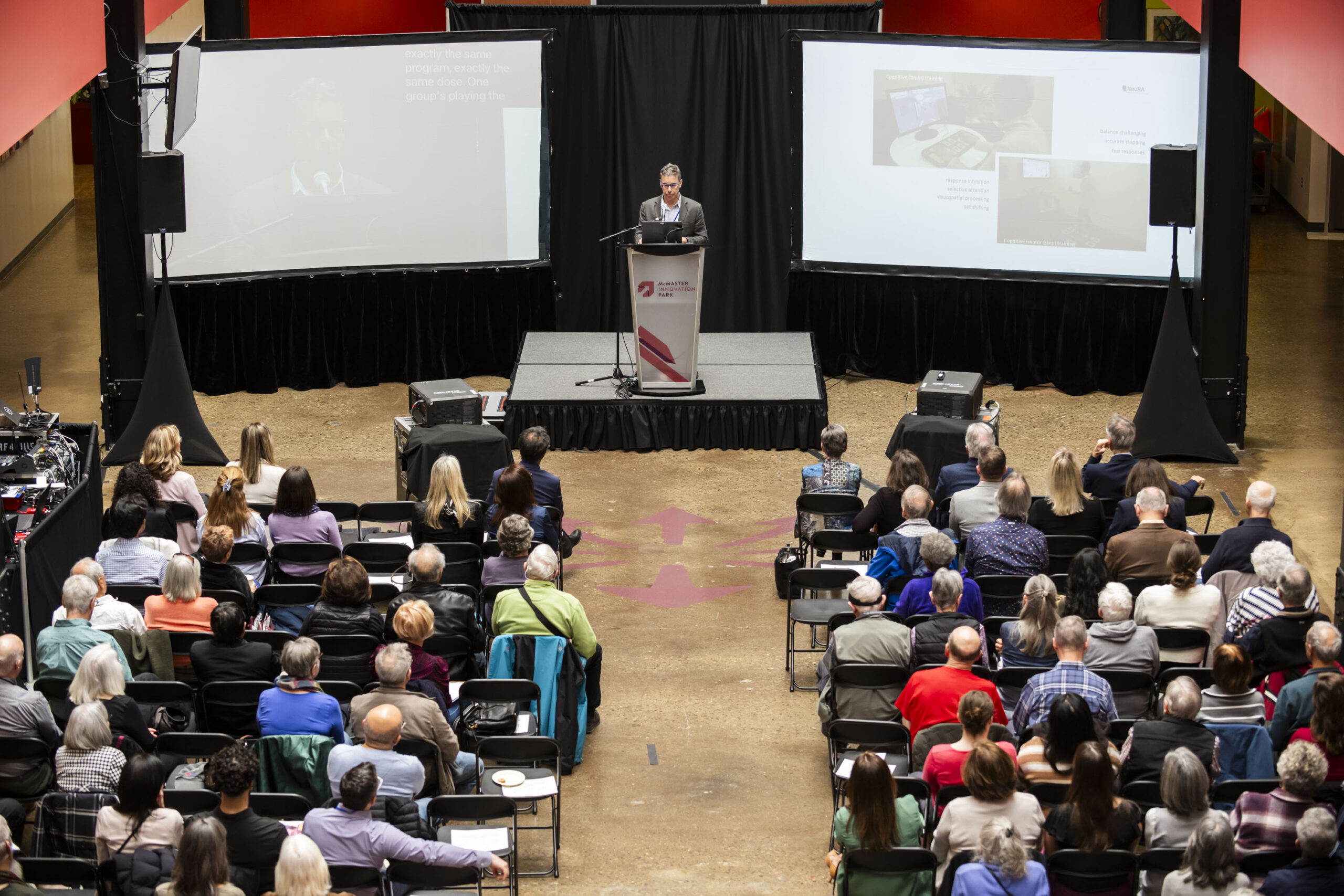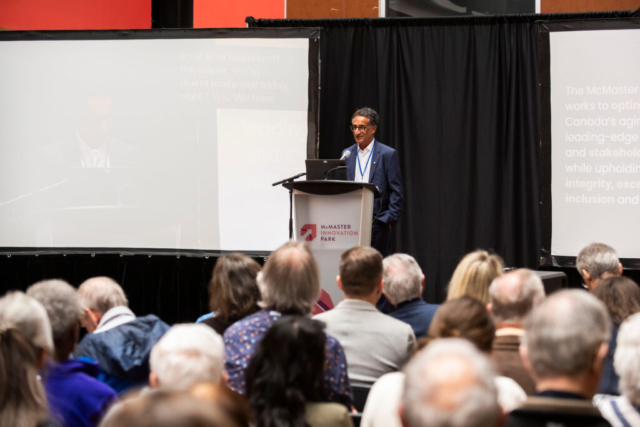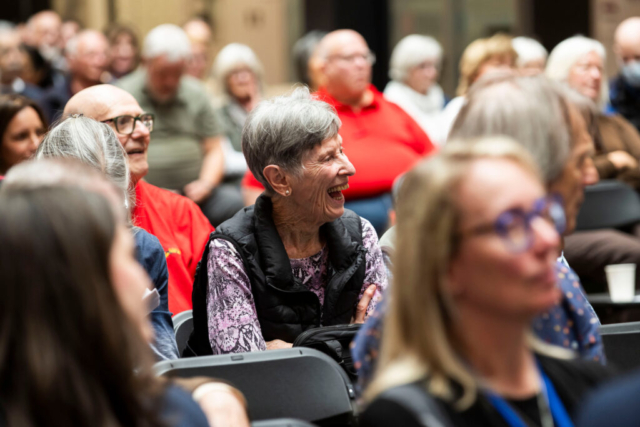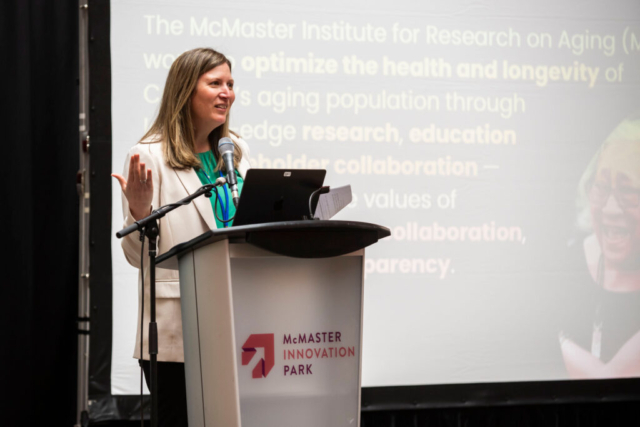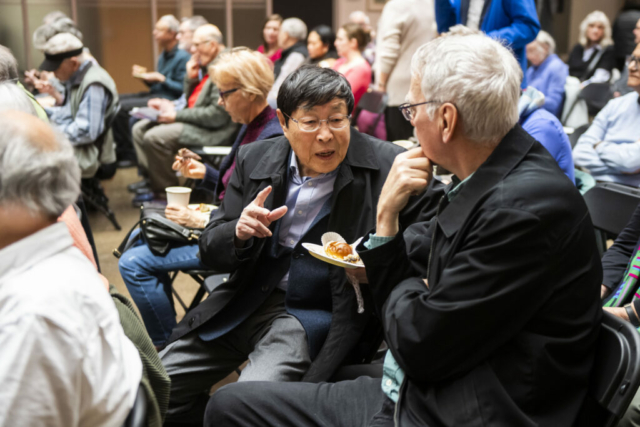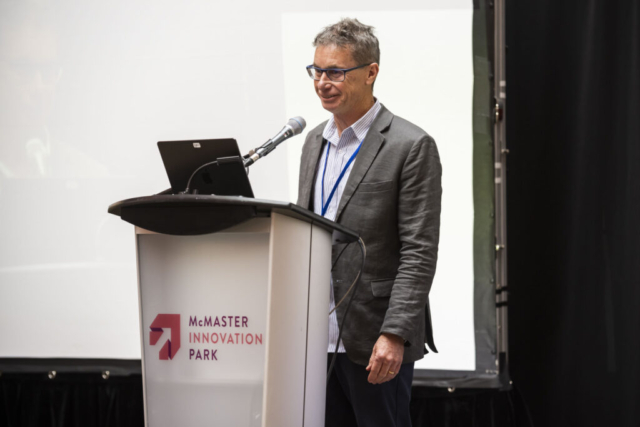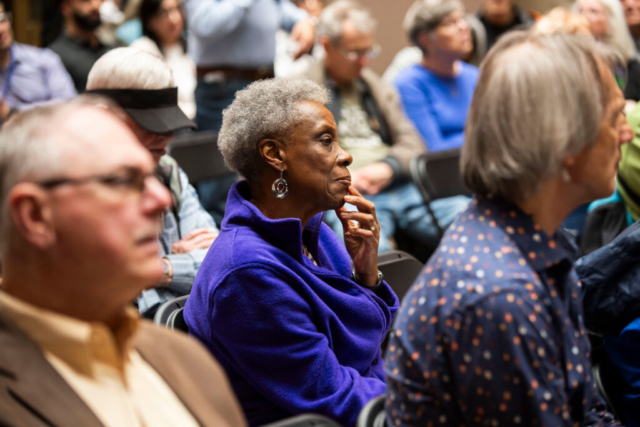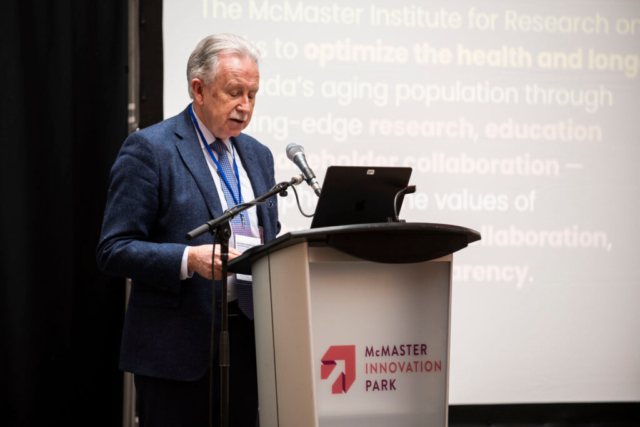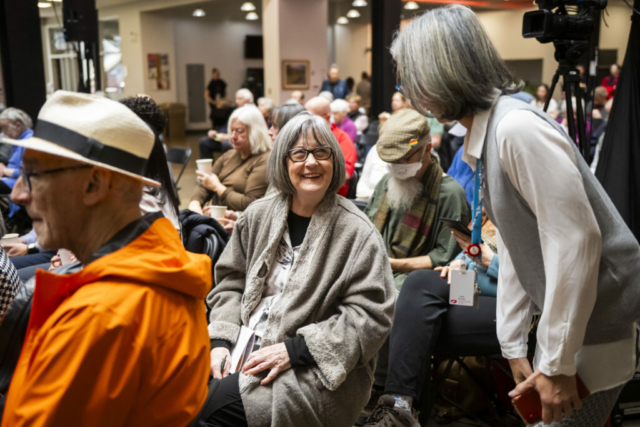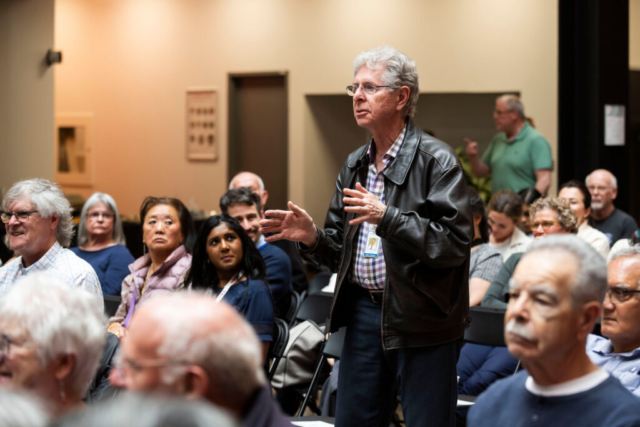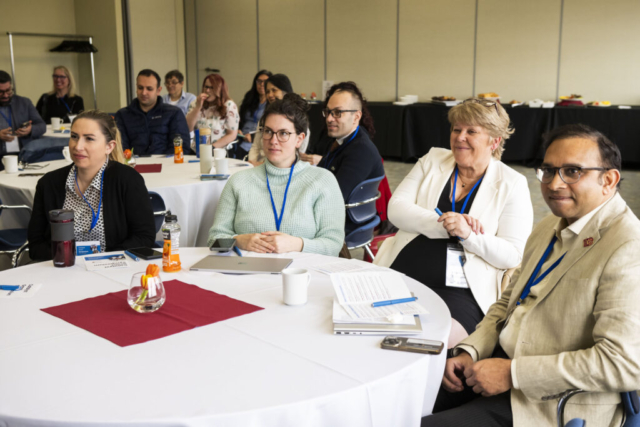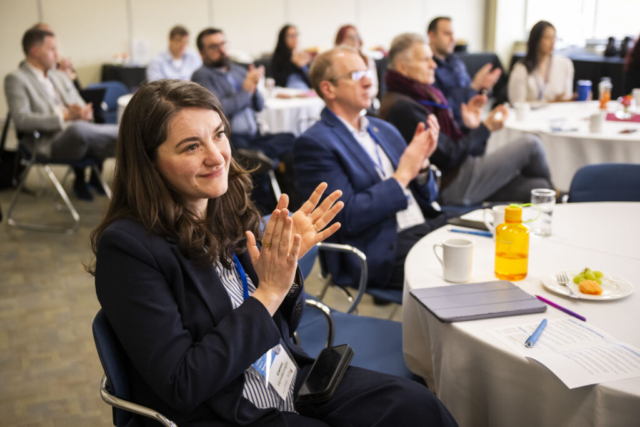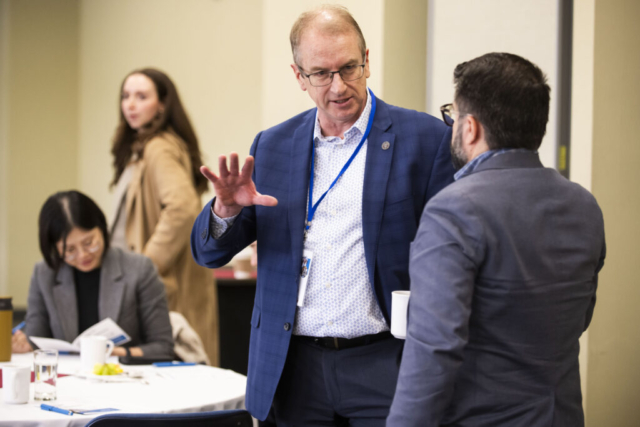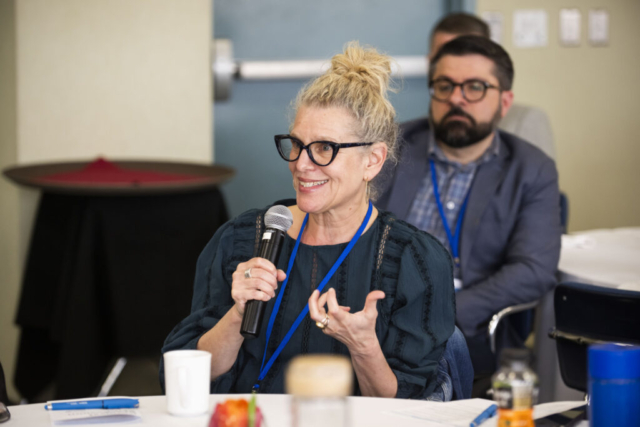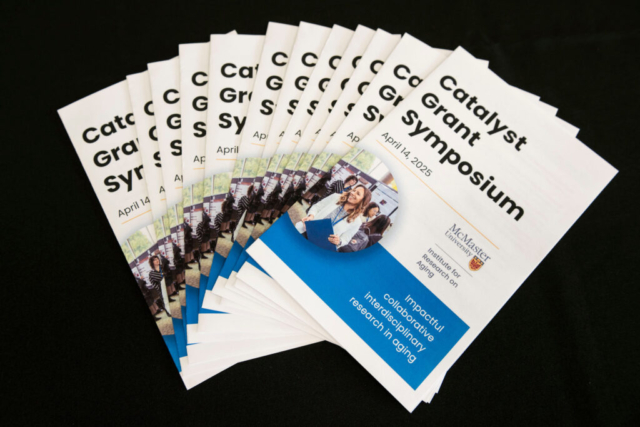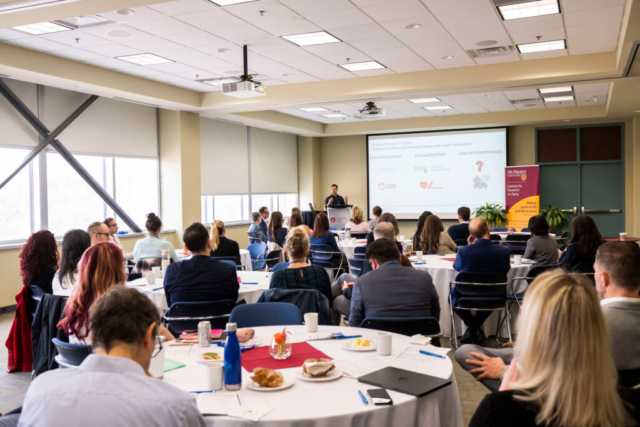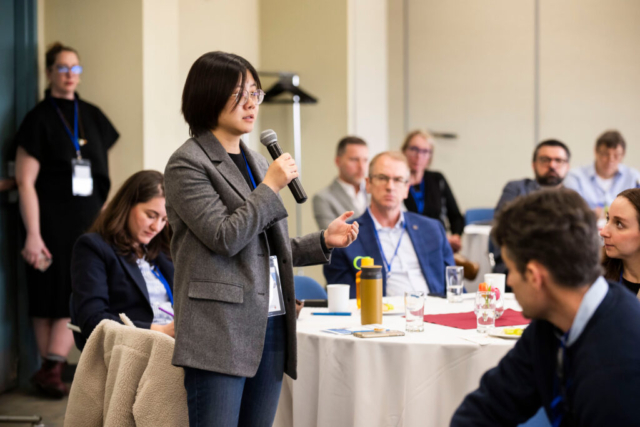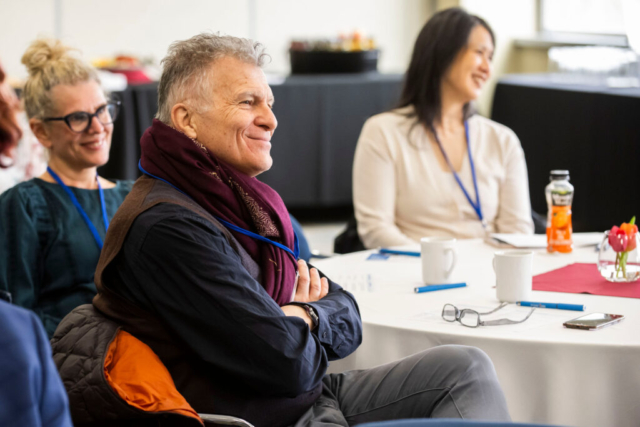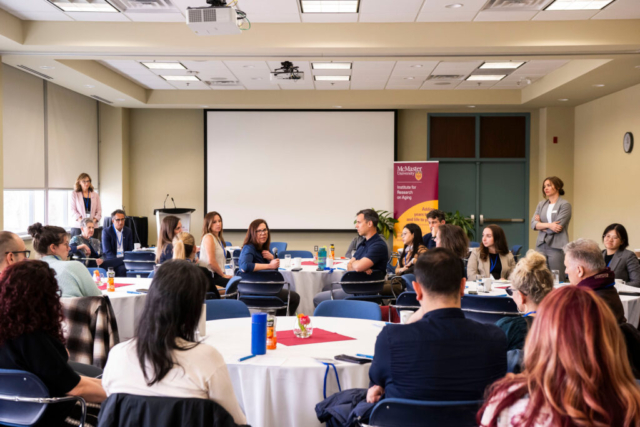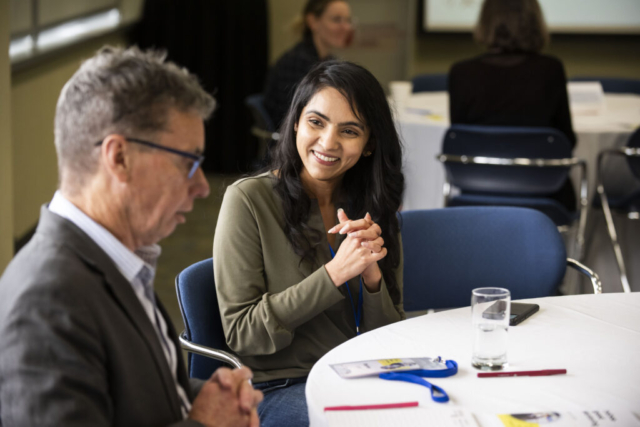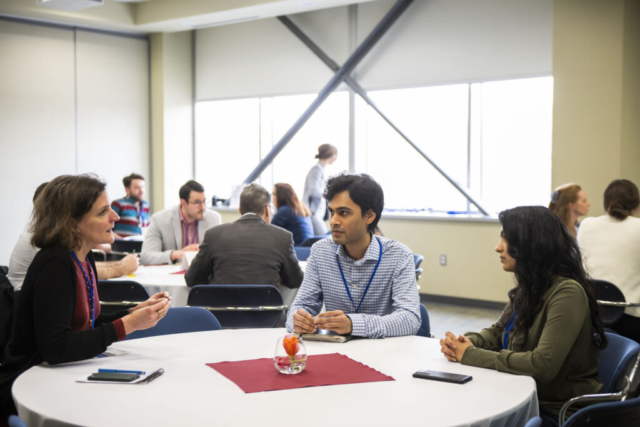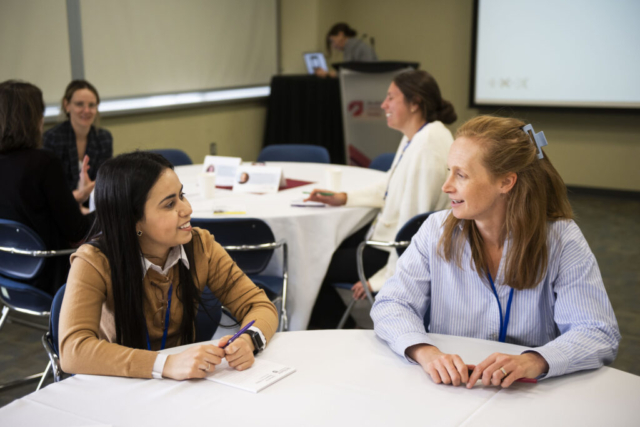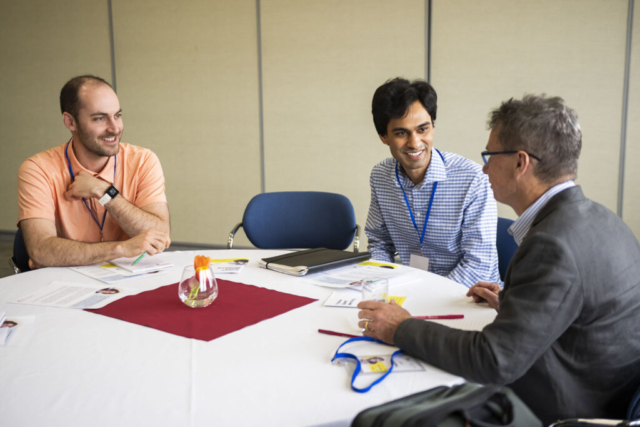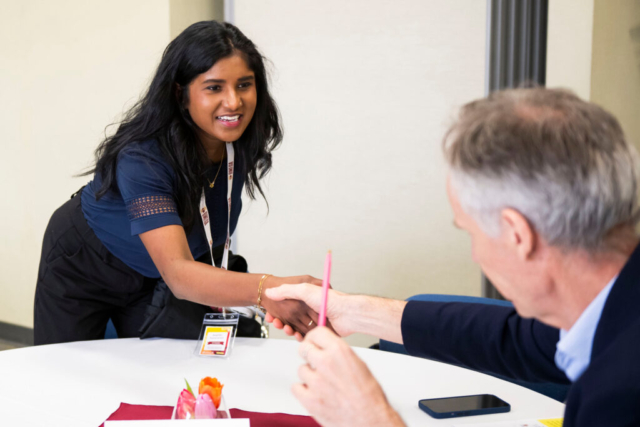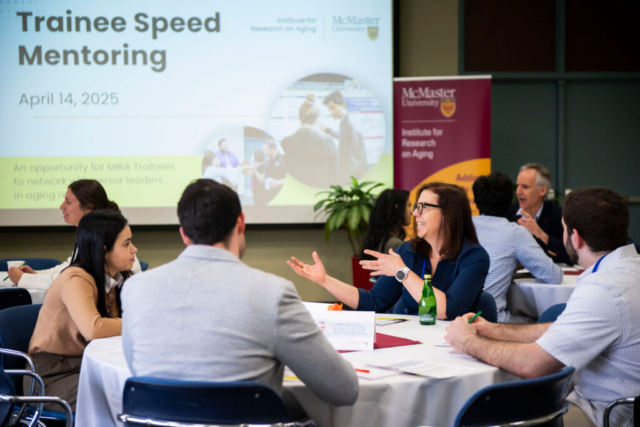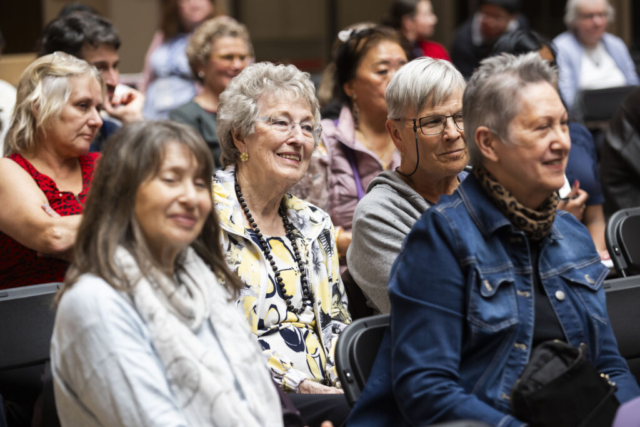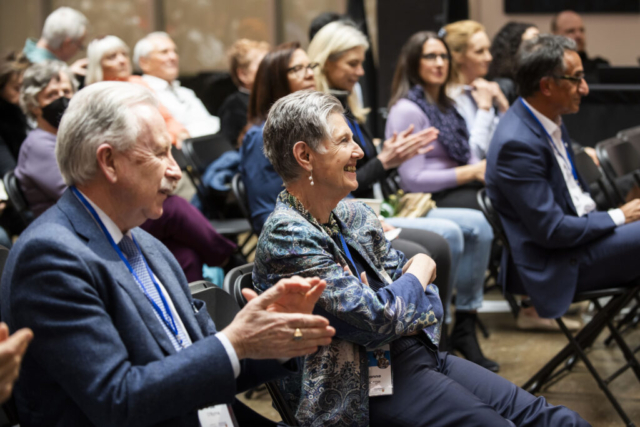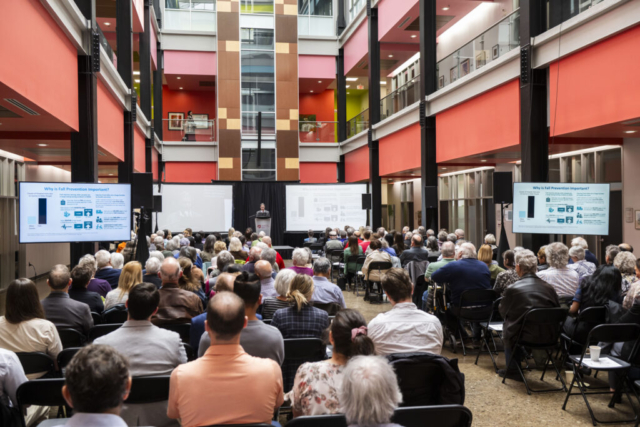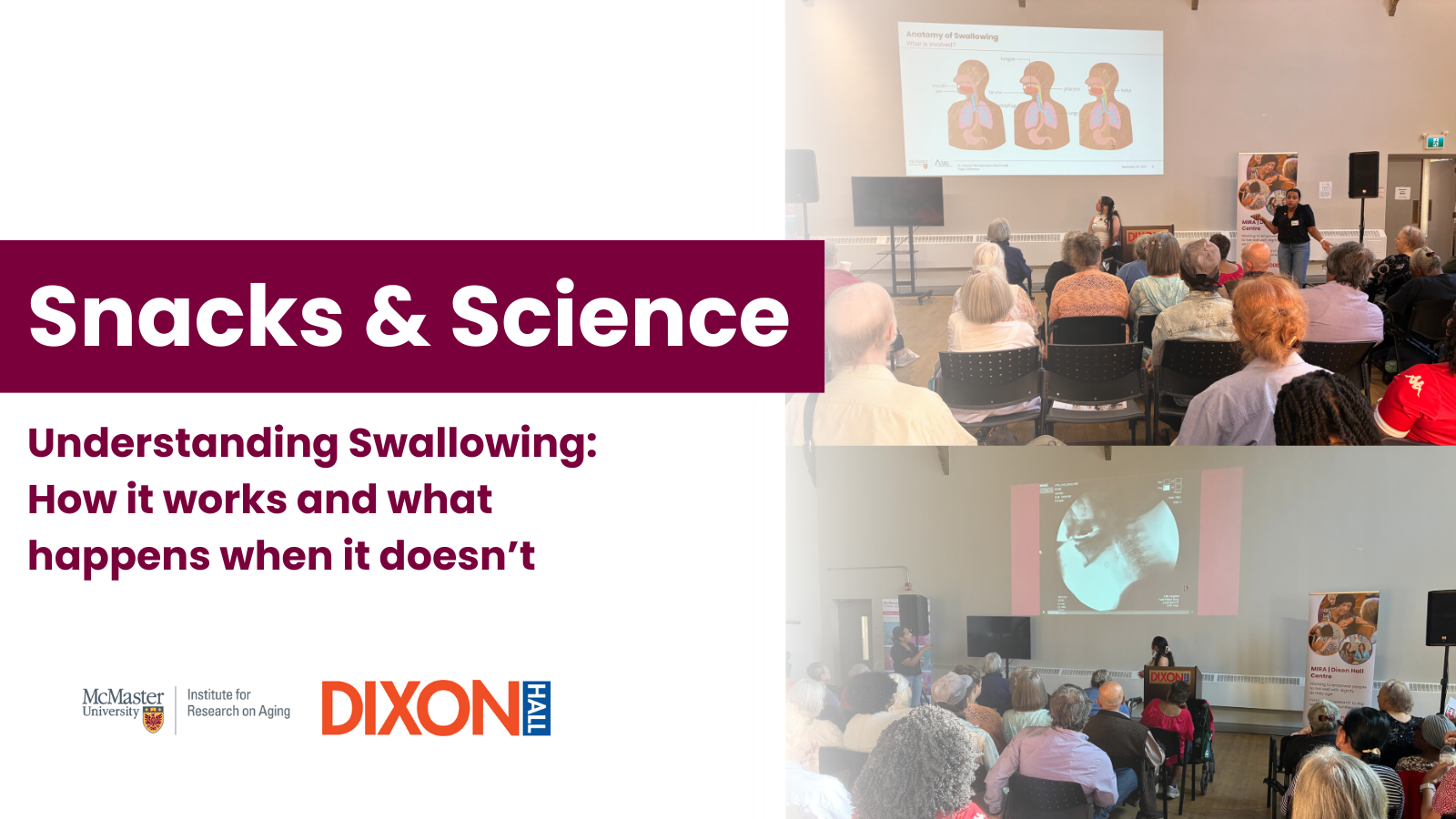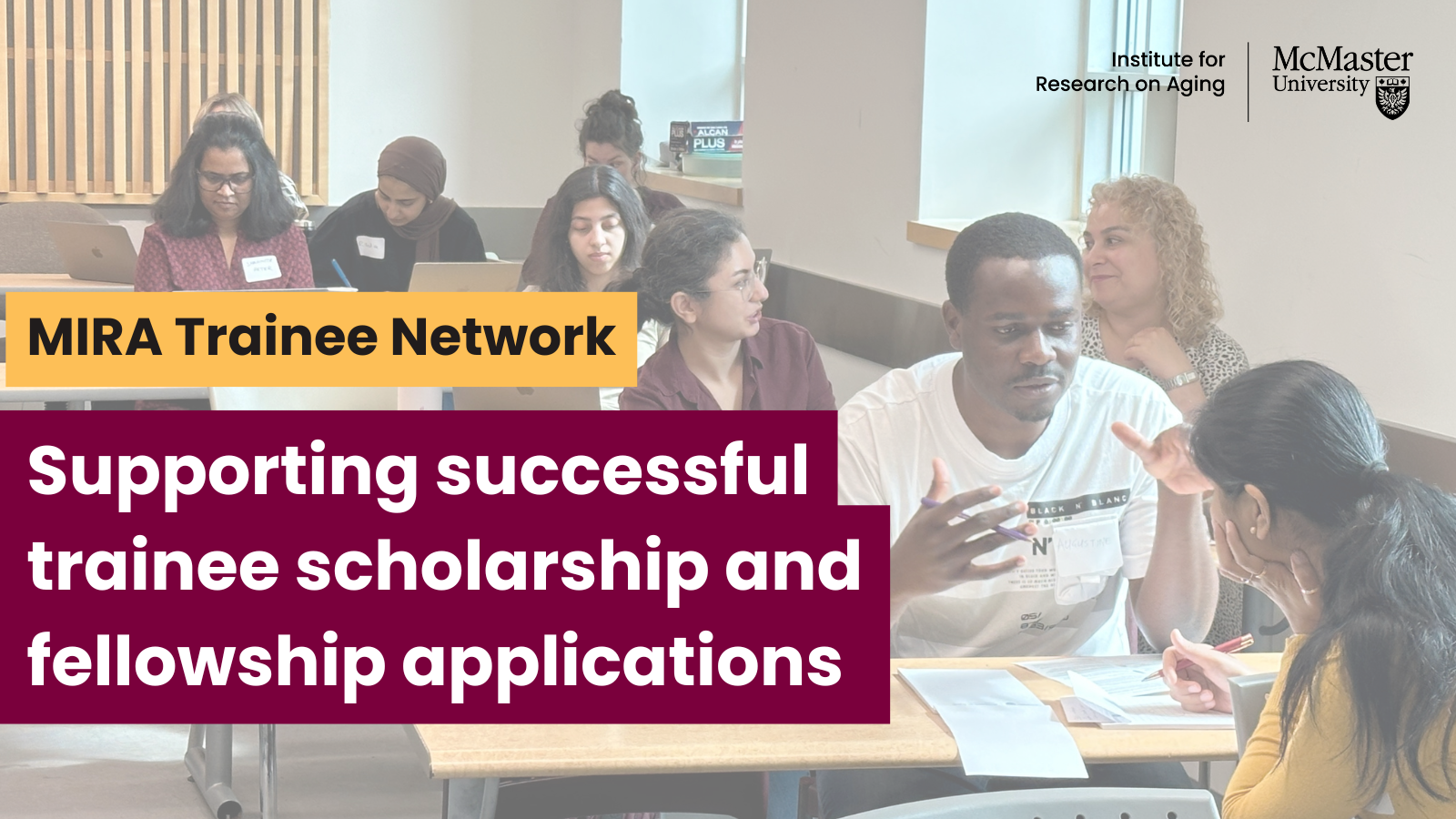On April 14th, the McMaster Institute for Research on Aging (MIRA) welcomed over 180 members of the Hamilton community to McMaster Innovation Park for the inaugural Suzanne Labarge Lecture in Aging. The annual series aims to connect notable aging researchers from around the world with McMaster’s innovative circle of engaged researchers, clinicians, and members of the community, addressing the complex challenges and needs of aging through presentation and networking. Highlighting cutting-edge work focused on improving function and independence later in life, the series aims to mobilize existing knowledge while encouraging the development of new strategies and solutions.
The first presentation in an annual series welcomed a keynote lecture by renowned falls expert Dr. Stephen Lord, Scientia Professor at the University of New South Wales, in Australia. Dr. Lord’s presentation “Steady, Safe, and Savvy: New technologies for fall prevention as we age” provided a systematic overview of emerging technologies for fall prevention—such as wearable sensors and virtual reality platforms—that are advancing research and practice in the field. MIRA’s Scientific Director Dr. Parminder Raina and MIRA | Dixon Hall Director Dr. Marla Beauchamp joined McMaster Faculty of Health Sciences Dean and Vice-President Dr. Paul O’Bryne in welcoming Dr. Lord, who presented to an engaged crowd of researchers, community members, policy makers and trainees, who engaged in a a lively Q&A session and celebration following the presentation. Members of the community and researchers posed questions and offered perspectives, enriching the academic dialogue with lived experiences.
The day began with a showcase of MIRA-funded research, featuring short presentations of research supported by Catalyst Grants awarded in 2024 and previous years. Catalyst Grants aim to foster collaborative approaches to complex aging-related challenges, bringing together researchers from diverse fields to generate innovative solutions. On Monday, attendees heard from past and current Catalyst Grant teams, who shared the real-world impact of their projects and showcased strides forward in projects that touched on a spectrum of questions in aging, from robots to retinas. Thank you to all who presented; a full list of presenters is available below
Past Catalyst Grant Presentations:
Heather Sheardown | PRG-4: Application in the treatment of dry age-related macular degeneration
Bruce Newbold | Implications of driving cessation amongst Canada’s older adults living in rural and small urban communities
Jenna Smith-Turchyn | A pilot randomized controlled trial of a virtual peer-support exercise intervention for older adults with cancer
Luciana Macedo | A user-centered approach towards the development of a pre-surgical rehabilitation program for patients with lumbar spinal stenosis
Manaf Zargoush | Addressing alternate level of care issue facing older Canadians; A co-designed comprehensive data analytics approach
Saara Greene | Women growing older: Older women’s experiences of accessing cannabis information and support through virtual community
2025 Catalyst Grant Presentations:
Jeremy Walsh | The effect of short-term ketone supplementation on dual-task performance and indices of brain function in adults with subjective cognitive decline
Irene Yuan | Recommending fall prevention resources for aging in place: designing a conversational agent with older adults and caregivers
Isabelle Tate (representing Thomas Wood) | Mitigating infections in joint replacements to improve mobility in aging
Lucy El-Sherif & Harith Abdulsattar | AI-enhanced flexible transit solutions for aging populations: Improving accessibility, affordability, and quality of service
Geraldina Polanco Sorto | Promoting optimal aging among migrant returnees
Cansu Ekmekcioglu | Enhancing financial, physical, and digital mobility: Designing user-centered gig work solutions for older newcomers
Aftab Taiyab | Understanding retinal homeostasis during the progression of glaucoma
Shane Saunderson | Exploring telepresence robots as mobility extensions for older adults
Following the lecture, MIRA offered an exclusive and engaging speed trainee mentoring opportunity, offering aging research trainees the chance to engage with senior scholars and leaders in aging research from across Canada. Mentors included Drs. Stephen Lord himself, Karim Khan a Professor in the Department of Family Practice and the School of Kinesiology at the University of British Columbia and the Scientific Director of the CIHR Institute of Musculoskeletal Health and Arthritis, Kathryn Sibley a Professor at the Max Rady College of Medicine, Department of Community Health Sciences at the University of Manitoba. Leading researchers from McMaster stepped in as supplementary mentors, including Lauren Giffith, PI of MIRA MPR PACIFIC, and Louise LaFortune, who leads MIRA’s new Program of Research in the Aging Brain.
MIRA would like to thank all participants, presenters and community members for contributing to the success of the inaugural event. Thank you to Suzanne Labarge for her generous support and continued dedication to advancing aging research.
For updated information on the annual Suzanne Labarge Lecture in Aging Series, please visit the series website.
